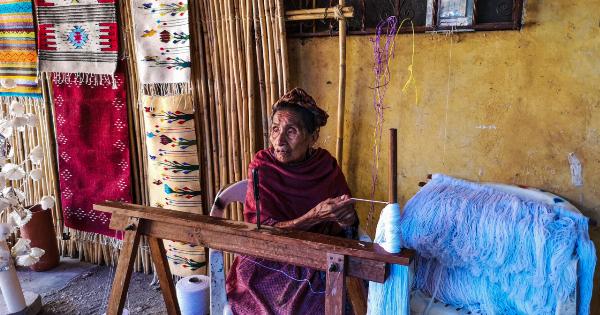In today’s society, there are still many misunderstandings and stereotypes surrounding HIV. These misconceptions contribute to the stigma and discrimination faced by individuals living with the virus.
However, through empathy, education, and human touch, we can break these stereotypes and create a more inclusive and supportive environment for everyone affected by HIV.
The Power of Touch
Human touch is a powerful tool that can convey compassion, understanding, and acceptance. It has the potential to bridge gaps and connect people on a deeper level.
Unfortunately, when it comes to HIV, touch is often seen as a form of transmission rather than a gesture of solidarity.
It is crucial to understand that HIV cannot be transmitted through casual contact, such as shaking hands, hugging, or sharing utensils.
These misconceptions have led to unjust discrimination against individuals living with HIV, socially isolating them and further fueling the stigma surrounding the virus.
Challenging the Fear
Fear is the root cause of many stereotypes surrounding HIV. People often fear the unknown, and when it comes to HIV, misinformation and lack of knowledge contribute to this fear. Challenging these fears begins with education.
By providing accurate information about HIV transmission and debunking common myths, we can help people understand that they are not at risk by simply touching someone living with HIV.
Organizations and educational institutions play a vital role in ensuring that accurate information reaches the public.
Additionally, personal stories and testimonies from individuals living with HIV can be powerful tools in challenging stereotypes.
Hearing about their experiences, struggles, and triumphs can humanize the virus and create empathy among those who may have held prejudiced views.
Creating Empathy and Understanding
Empathy is a key factor in breaking stereotypes surrounding HIV. By putting ourselves in the shoes of someone living with HIV, we can begin to understand their daily challenges and the impact of stigma on their lives.
Organizations and support groups can facilitate empathy-building exercises, where participants engage in various activities that simulate life with HIV.
These activities can help overcome stereotypes and promote understanding, leading to a more compassionate society.
Building Support Networks
Support networks play a crucial role in creating a safe and inclusive space for individuals living with HIV. These networks provide emotional support, promote self-esteem, and combat feelings of isolation.
Through touch, such as hugs or holding hands, support networks can provide a sense of belonging and acceptance. Physical contact can reassure individuals living with HIV that they are not alone and that they have people who genuinely care for them.
Destigmatizing HIV
Breaking down HIV stereotypes also involves addressing the stigmatization faced by individuals living with the virus.
Stigma not only affects the emotional well-being of those affected but also discourages people from seeking testing, treatment, and support.
It is crucial to foster a learning environment where individuals can openly discuss their concerns and ask questions without fear of judgment.
By promoting open dialogue, we can challenge misconceptions, reduce stigma, and encourage a more informed and supportive community.
Supporting Positive Language
Language plays a significant role in reinforcing or dispelling stereotypes. When discussing HIV, it is essential to use person-first language, emphasizing that individuals are more than their diagnosis.
Using inclusive language helps to humanize individuals living with HIV and challenge the notion that they are defined solely by their health status.
By focusing on their strengths, aspirations, and contributions, we can dismantle stereotypes and promote positive societal perceptions.
Educating Young Generations
Breaking HIV stereotypes requires starting early through comprehensive sexual education. A lack of understanding and awareness among young people perpetuates misconceptions and stigmatization.
Sexual education programs should include accurate and age-appropriate information about HIV transmission, prevention, and living with the virus.
By empowering young minds with knowledge, we can shape a future generation that is compassionate, knowledgeable, and free from HIV stereotypes.
Policy and Legal Reforms
Policy and legal reforms are essential in creating a society that supports individuals living with HIV and discourages discrimination.
Laws that criminalize HIV transmission or expose those living with the virus to undue scrutiny only perpetuate stereotypes and further marginalize affected individuals.
Implementing legislation that ensures the protection of rights, privacy, and confidentiality for individuals living with HIV is crucial.
By addressing legal barriers and advocating for policy changes, we can create an environment that fosters equality and breaks down HIV stereotypes.
Conclusion
Busting HIV stereotypes through touch isn’t about risking transmission, but rather about connecting with empathy and understanding.
By combating fear, spreading accurate information, creating support networks, educating young people, and pushing for legal reforms, we can break down the harmful stereotypes surrounding HIV. It is only through our collective effort that we can create a society that treats individuals living with HIV with compassion, respect, and equality.



























